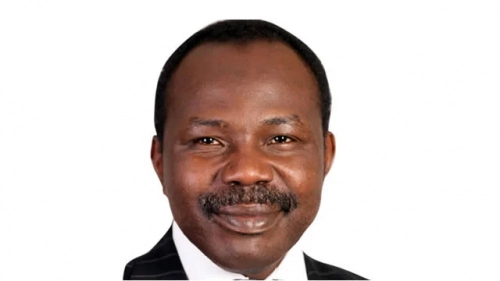Section 84 (12): To Be Or Not To Be (2)

In the first part of this piece, I dwelt on the philosophy behind the introduction of section 84 (12) in the new Electoral Act 2022, which said section stipulates that no political appointee at any level shall be a voting delegate or be voted for at the Convention or Congress of any political party for the purpose of the nomination of candidates for any election.
I posited that the National Assembly was right in sanitizing the political space and that section 84 (12) does not violate any provision in the Constitution of the Federal Republic of Nigeria, 1999 to render it unconstitutional. In the original version of the Electoral Act, section 84 (12) comes with a sub-heading titled: “Political Appointee Not Eligible as a Voting Delegate or Aspirant.”
Using this as a guide, it becomes crystal clear that the intent of the lawmakers with the introduction of section 84 (12) was to make it impossible for a political appointee to aspire for elective office whilst still holding on to his political appointment. I honestly cannot see how this piece of legislation amounts to an amendment of the Constitution through the backdoor as some have suggested.
The definition Section 318 of the Constitution which clarifies those to be regarded as part of the public service of the Federation also made similar provisions for public service of the State. Judicial authorities abound that political appointees hold their offices at the pleasure of the appointor and they are not civil or public servants as provided for in the Constitution.
Thus, there is no apparent or implied conflict between section 84 (12) of the Electoral Act and any of the provisions of the Constitution highlighted above, the rationale being to ensure that those who hold public office are not exposed to any situation that may lead to conflict of interest.
In the same vein, section 84 (12) does not infringe upon the right to freely assemble and associate with other persons as provided for in section 40 of the Constitution or the right to form a political party as provided for under section 221 thereof. The Constitution for instance provides the right to freedom of movement for every citizen, but in order to travel out of Nigeria, you need an international passport, without which you would not be allowed to board the plane. It is in that passport that the traveling visa to your country of destination will be imposed. The Courts have also held that the requirement for a passport as a condition to travel does not infringe upon the constitutional right of movement.
In the case of Awolowo v. Ministry of Internal Affairs, a similar concept was elucidated upon by the Supreme Court, when the appellant in that case, the late Chief Obafemi Awolowo, SAN, was standing trial for treasonable felony. He engaged the service of a British lawyer, Mr. E.F.N. Gratiaen to defend him. On arrival in Lagos, Mr Gratiaen was denied entry into Nigeria by the federal ministry of internal affairs. The court had to determine the import of section 21 (5) (c ) of the then 1960 Constitution of the Federal Republic of Nigeria (now section 36 (6) (c ) of the 1999 Constitution, which provided that “an accused person is entitled to defend himself in person or by legal practitioner of his own choice.”
Chief Awolowo contended in that case that he was entitled to be represented by any lawyer of his choice whether indigenous or British. Thus, the order prohibiting his lawyer, Mr Gratiaen, was ultra vires and against his right to fair hearing. He therefore prayed the court to grant an order of injunction, restraining the defendant from preventing the said Mr. Gratiaen (QC) or any other British counsel who might be counsel of his choice, from entering into Nigeria for the purpose of defending him in the pending charge.
On the other hand, the defendants in that case argued that the provisions of section 13 of the Immigration Act which provides that “Notwithstanding anything in this ordinance contained, the Governor-General may, in his absolute discretion, prohibit the entry into Nigeria of any person, not being a native of Nigeria”, gives the ministry the power to refuse a non-Nigerian entry into the country. More so, in exercise of the right conferred by section 21 (5) (c) of the 1960 Constitution, the legal representative must be a qualified person entitled to a right of audience in Nigerian courts. Secondly he must be available to take up the case, and therefore must be able to enter Nigeria as of right and must be a Nigerian.
The High Court of the federal territory of Lagos, Per Justice Udo Udoma held that based on the above provisions, the legal representative chosen by an accused person if resident outside Nigeria must be a person who could enter Nigeria as of right and must not be anyone under any disability. In the words of the judge: “I must state at once that I do not accept as sound proposition the submission that the provision contained in Section 21 (5) (c ) of the Constitution, liberally interpreted, can be construed to entitle anyone to bring a Counsel from the United Kingdom for the purpose of defending him in a criminal charge. To accept that interpretation, would be to strain language.
The Constitution is a Nigerian Constitution, meant for Nigerians in Nigeria. It only runs in Nigeria. The natural consequence of this is that the legal representative contemplated in Section 21 (5) (c) ought to be someone in Nigeria, and not outside it.” This decision was affirmed by the Supreme Court in the appeal filed against it by Chief Awolowo. In similar vein, Section 84 (12) has not stopped any citizen from contesting election but it has imposed a condition upon political appointees to first step down from their political position in order to seek elective office. There is no contradiction at all in this laudable provision with the Constitution.
Most political appointees are paid one form of emolument or allowance or the other by the government, with specific responsibilities to perform. Thus, even apart from the conflict of retaining executive position and seeking elective office, how does a person occupying a political office abandon his responsibilities for which he is being paid to embark upon campaigns at the expense of the people? What justification can we give for retaining a person on the payroll of the government who already has his eyes on another assignment? Political appointees and persons in public service of the Federation and of the States are two separate and distinct classes of persons.
While those in public service have not less than thirty days ahead of their party primaries to resign to contest an election, political appointees must resign before they can become voting delegates or be voted for in their party primaries or congresses. The Constitution stipulates that public office holders resign “at least” thirty days before the elections they are interested in, which presupposes that such public officers could indeed resign earlier than the 30 days, however, the Electoral Act stipulates that political appointees must resign before party primaries/congresses where candidates are to emerge. question to ask then is whether the National Assembly has by Section 84 (12) of the Electoral Act negated the constitutional stipulation of “at least 30 days”? Certainly not. The two concepts do not oppose themselves at all. For civil and public servants, the Constitution demands that they resign not less than thirty days prior to any election for which they seek to contest whilst Section 84 (12) simply prohibits political appointees from participating in elections to be conducted at the conventions and congresses of their political parties whilst still retaining their political appointments.
In its Section 228 (a), the Constitution states that the National Assembly “… may by law provide guidelines and rules to ensure internal democracy within political parties, including making laws for the conduct of the party primaries, party congresses and party convention”. Under and by virtue of section 4 of the selfsame Constitution, “the National Assembly shall have power to make laws for the peace, order and good government of the Federation or any part thereof”. What then, if one may ask, could be the ‘offence’ of the National Assembly in fulfilling its mandate as directed by the Constitution?
To my mind, there is really no need for us to split hairs on this simple matter of interpretation of the Constitution and the Electoral Act. Unless as suggested by Mr. Femi Falana, SAN and many others, the executive arm has an axe to grind with the legislature over this very harmless piece of legislation, there can be no basis for the jubilation that has greeted the judgment of the Umuahia Federal High Court by the executive.
We must sanitize the electoral space to remove all vestiges of manipulation and land mines. It is not in our best interest for those that we pay to perform certain duties to abscond from their sacred responsibilities in order to actualise their personal ambitions to seek elective office. They owe us the duty of fairness to surrender our mandate granted to them through their appointments should they aspire to contest any election. It is gratifying that the National Assembly and other stakeholders of our electoral system have taken the decision to join the case to explore further interpretation by the appellate courts. That is commendable indeed or else we may soon have in our hands a ridiculous situation whereby the Chairman of INEC or even the Governor of Central Bank of Nigeria may seek to contest election whilst still holding on to their appointments.


